![Lacy, Steve: The Ictus Archives, Volume 2 [VINYL] (Ictus) Lacy, Steve: The Ictus Archives, Volume 2 [VINYL] (Ictus)](https://www.teuthida.com/productImages/misc4/33444.jpg)
Drawn from the same period around 1976 which produced legendary free jazz saxophonist Steve Lacy's albums Clangs and Trio Live, the collected recordings in the two volumes of Ictus Record's Archives series were recorded while touring Italy with percussionist Andrea Centazzo, this 2nd volume from a concert in Udine presenting duos with Centazzo and a trio with bassist Kent Carter.
Out of Stock
Quantity in Basket: None
Log In to use our Wish List
Shipping Weight: 24.00 units
Steve Lacy-soprano saxophone
Andrea Centazzo-percussion
Kent Carter-bass
Click an artist name above to see in-stock items for that artist.
UPC: 769791984400
Label: Ictus
Catalog ID: ICTUSRE 008LP
Squidco Product Code: 33444
Format: LP
Condition: New
Released: 2023
Country: Italy
Packaging: LP
Recorded live in concert in Udine, Italy, on December 5th, 1976, by Leonardo Venurini.
"The final two LPs in the latest Ictus batch, The Ictus Archives Vol. 1 and Vol. 2, both draw on the same period that the veteran saxophonist produced Clangs and Trio Live, both recorded in 1976 during of two weeks that he was touring Italy with Andrea Centazzo, released in 1976 and 1977 respectively, and reissued in 2021's batch.
Gathering four sides of material, issued as two individual LPs, here is an offering of incredible insight into that moment's striking collaborations with Centazzo and the bassist Kent Carter, forming in duo and trio configurations.
The Ictus Archives Vol. 1 and Vol. 2 encounter Steve Lacy -- one of the giants of American free jazz -- already two decades into a career defined by brilliant collaborations with Cecil Taylor, Don Cherry, and Thelonious Monk, among others, as well as a sprawling body of visionary work as a leader. Like so much of his work leading into this period, it draws upon the saxophonist's belief that an artist should play what you feel, a position that Centazzo recalls as having torn down the curtain that separated his technique from his creativity.
The lyricality of Lacy's playing sets them apart from the more brittle and textural temperance featured throughout much of the label's output. Three tracks on Vol. 2 -- "Name", "The Way", and "Bone" -- recorded on December 5th, 1976, in Udine Italy -- were two duos with Centazzo, and the trio ("Feline") on the second side, stands distinct, with each player issuing rapid fire interventions within an airy sense of space. Crucial artifacts of the seminal saxophonist at the height of his career, never before encountered in these full concert formations, and thus pushing the historical importance of the Ictus reissue series to the next level."-Ictus
Artist Biographies
• Show Bio for Steve Lacy "Steve Lacy (July 23, 1934 - June 4, 2004), born Steven Norman Lackritz in New York City, was a jazz saxophonist and composer recognized as one of the important players of soprano saxophone. Coming to prominence in the 1950s as a progressive dixieland musician, Lacy went on to a long and prolific career. He worked extensively in experimental jazz and to a lesser extent in free improvisation, but Lacy's music was typically melodic and tightly-structured. Lacy also became a highly distinctive composer, with compositions often built out of little more than a single questioning phrase, repeated several times. The music of Thelonious Monk became a permanent part of Lacy's repertoire after a stint in the pianist's band, with Monk's songs appearing on virtually every Lacy album and concert program; Lacy often partnered with trombonist Roswell Rudd in exploring Monk's work. Beyond Monk, Lacy performed the work of jazz composers such as Charles Mingus, Duke Ellington and Herbie Nichols; unlike many jazz musicians he rarely played standard popular or show tunes. Lacy began his career at sixteen playing Dixieland music with much older musicians such as Henry "Red" Allen, Pee Wee Russell, George "Pops" Foster and Zutty Singleton and then with Kansas City jazz players like Buck Clayton, Dicky Wells, and Jimmy Rushing. He then became involved with the avant-garde, performing on Jazz Advance (1956), the debut album of Cecil Taylor,:55 and appearing with Taylor's groundbreaking quartet at the 1957 Newport Jazz Festival; he also made a notable appearance on an early Gil Evans album. His most enduring relationship, however, was with the music of Thelonious Monk: he recorded the first album to feature only Monk compositions (Reflections, Prestige, 1958) and briefly played in Monk's band in 1960:241 and later on Monk's Big Band and Quartet in Concert album (Columbia, 1963). Lacy's first visit to Europe came in 1965, with a visit to Copenhagen in the company of Kenny Drew; he went to Italy and formed a quartet with Italian trumpeter Enrico Rava and the South African musicians Johnny Dyani and Louis Moholo (their visit to Buenos Aires is documented on The Forest and the Zoo, ESP, 1967). After a brief return to New York, he returned to Italy, then in 1970 moved to Paris, where he lived until the last two years of his life. He became a widely respected figure on the European jazz scene, though he remained less well known in the U.S. The core of Lacy's activities from the 1970s to the 1990s was his sextet: his wife, singer/violinist Irene Aebi,:272 soprano/alto saxophonist Steve Potts, pianist Bobby Few, bassist Jean-Jacques Avenel, and drummer Oliver Johnson (later John Betsch). Sometimes this group was scaled up to a large ensemble (e.g. Vespers, Soul Note, 1993, which added Ricky Ford on tenor sax and Tom Varner on French horn), sometimes pared down to a quartet, trio, or even a two-saxophone duo. He played duos with pianist Eric Watson. Lacy also, beginning in the 1970s, became a specialist in solo saxophone; he ranks with Sonny Rollins, Anthony Braxton, Evan Parker, and Lol Coxhill in the development of this demanding form of improvisation. Lacy was interested in all the arts: the visual arts and poetry in particular became important sources for him. Collaborating with painters and dancers in multimedia projects, he made musical settings of his favourite writers: Robert Creeley, Samuel Beckett, Tom Raworth, Taslima Nasrin, Herman Melville, Brion Gysin and other Beat writers, including settings for the Tao Te Ching and haiku poetry. As Creeley noted in the Poetry Project Newsletter, "There's no way simply to make clear how particular Steve Lacy was to poets or how much he can now teach them by fact of his own practice and example. No one was ever more generous or perceptive." In 1992, he was the recipient of a MacArthur Fellowship (nicknamed the "genius grant"). He also collaborated with a wide range of musicians, from traditional jazz to the avant-garde to contemporary classical music. Outside of his regular sextet, his most regular collaborator was pianist Mal Waldron,:244-245 with whom he recorded a number of duet albums (notably Sempre Amore, a collection of Ellington/Strayhorn material, Soul Note, 1987). Lacy played his 'farewell concerts to Europe' in Belgium, in duo and solo, for a small but motivated public. This happened in Brussels, Antwerp, Ghent, Bruge and Bergen. This recollection is published by Naked Music. In Ghent he played with the classical violinist Mikhail Bezverkhni, winner of Queen Elisabeth Concours. He returned to the United States in 2002, where he began teaching at the New England Conservatory of Music in Boston, Massachusetts. One of his last public performances was in front of 25,000 people at the close of a peace rally on Boston Common in March 2003, shortly before the US-led invasion of Iraq. After Lacy was diagnosed with cancer in August 2003, he continued playing and teaching until weeks before his death on June 4, 2004 at the age of 69." ^ Hide Bio for Steve Lacy • Show Bio for Andrea Centazzo "In an artistic career that spans over twentyfive years, Andrea Centazzo has given more than 1000 concerts and live performances in Europe and the United States, as well as having appeared and performed on numerous radio and television broadcasts. He has recorded over 60 LP's and CD's, and has authored 350 compositions and eight musicology books. His musical endeavors and creative expression range from the sublime to the passionate, from lyric opera to orchestral symphony and solo percussion. He has performed in momentous festivals as soloist of his own compositions or as conductor of symphonic orchestras. Centazzo is a pioneer of contemporary percussion. In the early years, he performed with some of the greatest avant-garde soloists and composers, including J. Zorn, S. Bussotti, S. Lacy, D. Cherry, A. Mangellsdorf, E. Parker, etc. Deservedly, Centazzo has received a number of prestigious music and video Awards (Premio Speciale della Critica Discografica Italiana, USA Downbeat Poll, International Video Festival Tokyo, Prix Arcanal of French Culture, etc.) A doctoral graduate in musicology, he has taught seminars and workshops in Europe and the USA. Since 1983, Centazzo has been dedicated to creating multi-media experiences. This expansion began with an exhibition of his scores rendered as painted ideograms, and evolved into video performances combining both live performance with video images. These efforts culminated in his directing award-winning videos and films. As a soundtrack composer, he unites traditional instrumentation with current technological advances in musical expression through sampling machines and computers. These efforts give a new perspective to the fusion of sound and image through his theatre, television, video, CD rom, and feature film scores. The music of A.C. captures and expresses the rhythm and pulse of life by synthesizing the mystery of Oriental percussive vibrations with the timbral harmonic understanding of contemporary music and the soul of jazz and rock post-culture. A.C. continues to contribute his unique artistic vision to the evolution of contemporary culture." ^ Hide Bio for Andrea Centazzo • Show Bio for Kent Carter "Kent Carter (born June 14, 1939 in Hanover, New Hampshire, USA. Carter studied several instruments before settling on bass. In the late 50s-early 60s, he studied at Berklee College Of Music, played with Lowell Davidson, and in New York with Jazz Composers Orchestra. From the mid-60s he was in Europe with artists including as Barry Altschul, Derek Bailey, Han Bennink, Carla Bley, Paul Bley, Bobby Bradford, Don Cherry, Steve Lacy, Michael Mantler, Enrico Rava, Max Roach, Roswell Rudd and Mal Waldron. During the 70s he continued his association with Lacy, was with John Stevens' Spontaneous Music Ensemble, TOK, a trio with Takashi Kako and Oliver Johnson, and formed his own trio with Carlos Zingaro and François Dreno. By the 80s, Carter had relocated to France, teaching at the Beaux Art School, Angouleme, and with his wife forming MAD, a music, arts and dance studio. He worked in Detail, with Frode Gjerstad and Stevens, Project, with Karl Berger, Claude Bernard, Klaus Kugel, Charlie Mariano and Albrecht Maurer, and Voyage, with Beñat Achiary and David Holmes. Carter has also played with Billy Bang, Petras Vysniauskas, Theo Jorgensmann, Andreas Willers and Eckard Koltermann. Carter composes for theatre and film, and performs internationally." ^ Hide Bio for Kent Carter
12/17/2025
Have a better biography or biography source? Please Contact Us so that we can update this biography.
12/17/2025
Have a better biography or biography source? Please Contact Us so that we can update this biography.
12/17/2025
Have a better biography or biography source? Please Contact Us so that we can update this biography.
Track Listing:
SIDE A
1. Name
SIDE B
2. The Way
1. Bone
2. Feline
Vinyl Recordings
Improvised Music
Jazz
Free Improvisation
European Improvisation, Composition and Experimental Forms
Lacy, Steve
Trio Recordings
Duo Recordings
Staff Picks & Recommended Items
Last Copy of Items that will not be restocked...
Search for other titles on the label:
Ictus.


![Lacy, Steve: The Ictus Archives, Volume 2 [VINYL] (Ictus) Lacy, Steve: The Ictus Archives, Volume 2 [VINYL] (Ictus)](https://www.teuthida.com/productImages/full/33444.Full.jpg)



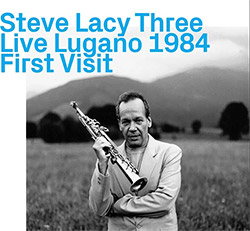


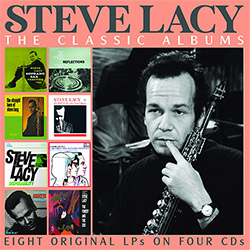
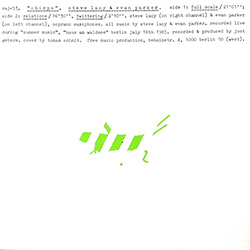
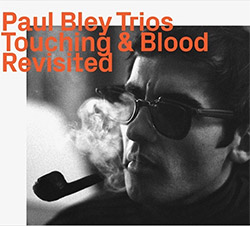
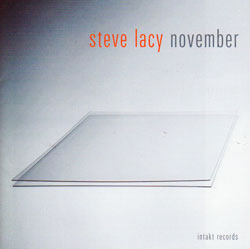
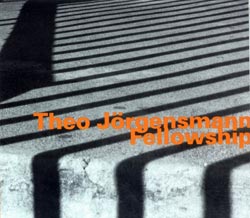



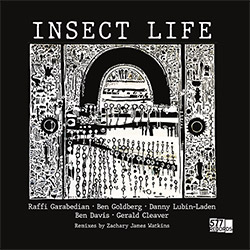
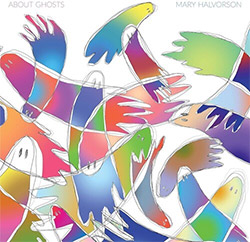
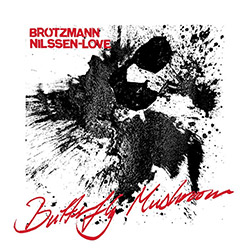
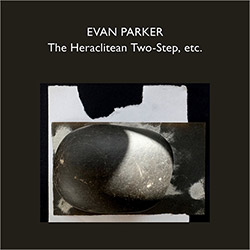
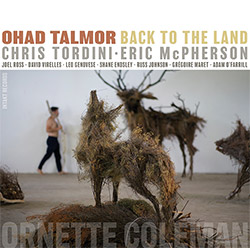


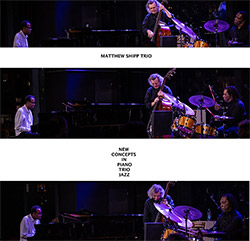
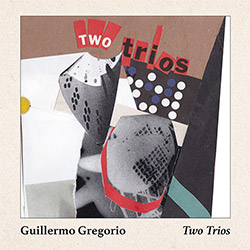

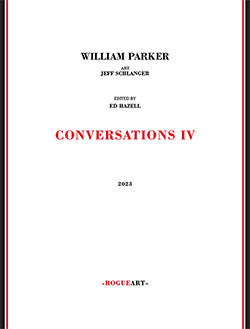


![HobbyHouse (Mia Dyberg / Axel Filip): HobbyHouse [CD + DOWNLOAD]](https://www.teuthida.com/productImages/misc4/36944.jpg)
![Mines, Kelsey / Erin Rogers: Scratching At The Surface [CD + DOWNLOAD]](https://www.teuthida.com/productImages/misc4/36945.jpg)
![Nebbia, Camila (feat/ Marilyn Crispell / Lesley Mok): A Reflection Distorts Over Water [CD + DOWNLOAD]](https://www.teuthida.com/productImages/misc4/36946.jpg)
![Vanheerentals, Adia: Taking Place [CD + DOWNLOAD]](https://www.teuthida.com/productImages/misc4/36947.jpg)
![Mines, Kelsey / Vinny Golia: Collusion and Collaboration [CD + DOWNLOAD]](https://www.teuthida.com/productImages/misc4/36948.jpg)
![Parkins, Zeena: Lament For The Maker [CD + DOWNLOAD]](https://www.teuthida.com/productImages/misc4/36949.jpg)
![Evans, Peter / Mike Pride : A Window, Basically [CD + DOWNLOAD]](https://www.teuthida.com/productImages/misc4/36950.jpg)


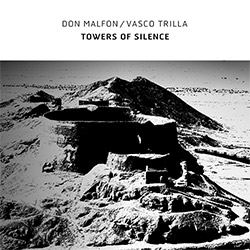
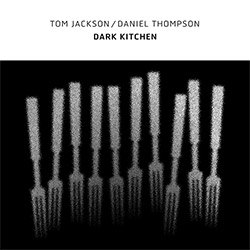
![Frey, Jurg : Composer, Alone [3 CDs]](https://www.teuthida.com/productImages/misc4/36927.jpg)
![Belorukov, Ilia / Alex Riva: Wrestling For Futility [CASSETTE w/DOWNLOAD]](https://www.teuthida.com/productImages/misc4/36994.jpg)
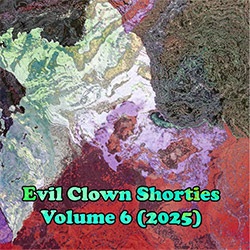
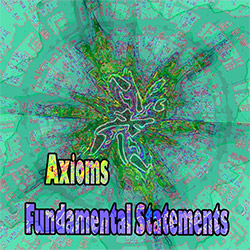










![Agnel, Sophie: Learning [VINYL]](https://www.teuthida.com/productImages/misc4/36841.jpg)

![Monaco, Amanda (w/ Michael Attias / Sean Conly / Satoshi Takeishi) : Deathblow [VINYL+ DOWNLOAD]](https://www.teuthida.com/productImages/misc4/36956.jpg)
![Frey, Jurg with ensemble]h[iatus: Je Laisse A La Nuit Son Poids D](https://www.teuthida.com/productImages/misc4/36988.jpg)
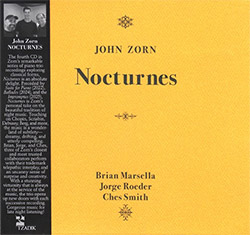
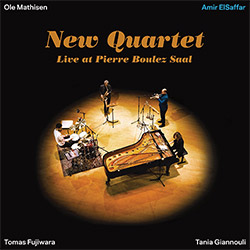
![ElSaffar, Amir / New Quartet : Live at Pierre Boulez Saal [VINYL]](https://www.teuthida.com/productImages/misc4/36830.jpg)

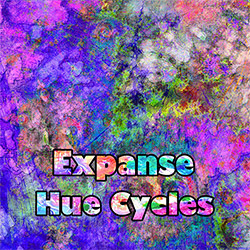
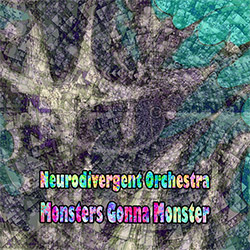
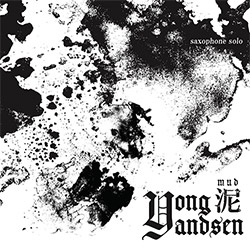

![Musicworks Magazine: #152 Fall 25 [MAGAZINE + CD]](https://www.teuthida.com/productImages/misc4/37004.jpg)
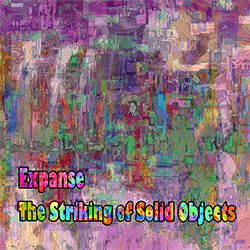




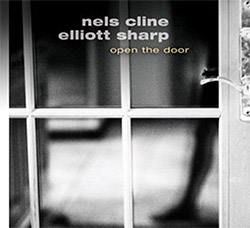
![[ahmed] (Thomas / Grip / Gerbal / Wright): Sama](https://www.teuthida.com/productImages/misc4/36976.jpg)

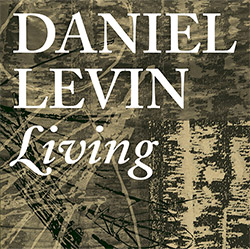
![Cleaver, Gerald / Brandon Lopez / Hprizm: In The Wilderness [COLOR VINYL]](https://www.teuthida.com/productImages/misc4/33060.jpg)
![McPhee, Joe : Defiant Jazz: a Joe McPhee Taster [VINYL]](https://www.teuthida.com/productImages/misc4/36859.jpg)
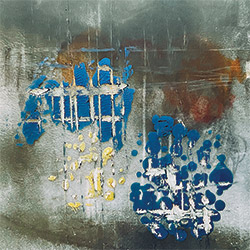
![Mateen, Sabir / Patrick Holmes / Federico Ughi : Survival Situation [LTD VINYL LP + DOWNLOAD]](https://www.teuthida.com/productImages/misc4/29891.jpg)
![Tucker, Dave / Pat Thomas / Thurston Moore / Mark Sanders: Educated Guess Vol. 1 [COLORED VINYL]](https://www.teuthida.com/productImages/misc4/30183.jpg)
![Sarian, Michael / Matthew Putman: A Lifeboat (Part I) [COLORED VINYL]](https://www.teuthida.com/productImages/misc4/30426.jpg)

![Genthon, Anouck / Lionel Marchetti: Suite Blanche [2 CDs]](https://www.teuthida.com/productImages/misc4/36642.jpg)
![Toeplitz, Kasper T.: Erosions Programmees [CD + BOOKLET]](https://www.teuthida.com/productImages/misc4/36639.jpg)
![Gate, The : Amost Live [CASSETTE + MAGAZINE]](https://www.teuthida.com/productImages/misc4/36836.jpg)






![A Magic Whistle: The Solar Cell [VINYL]](https://www.teuthida.com/productImages/misc4/36658.jpg)

![McGee, Hal: Columbus Expedition [Cassette w/ Download]](https://www.teuthida.com/productImages/misc4/36650.jpg)


![Jaeger, Kassel: Fernweh [VINYL 2 LPs]](https://www.teuthida.com/productImages/misc4/36541.jpg)





![+DOG+: The Light Of Our Lives [2 CDs]](https://www.teuthida.com/productImages/misc4/36009.jpg)


![Eternities: Rides Again [CASSETTE]](https://www.teuthida.com/productImages/misc4/36247.jpg)

![Lopez, Francisco: Untitled (2021-2022) [2 CDs]](https://www.teuthida.com/productImages/misc4/36438.jpg)





![Pisaro-Liu, Michael: Within (2) / Appearance (2) [2 CDs]](https://www.teuthida.com/productImages/misc4/36831.jpg)










![Musicworks Magazine: #151 Summer 25 [MAGAZINE + CD]](https://www.teuthida.com/productImages/misc4/36559.jpg)

![Brown, Dan / Dan Reynolds: Live At The Grange Hall [unauthorized][CASSETTE]](https://www.teuthida.com/productImages/misc4/36245.jpg)


![Zorn, John: The Song of Songs [CD + CD BOOK]](https://www.teuthida.com/productImages/misc4/36923.jpg)

![Coultrain: Mundus [COLORED VINYL]](https://www.teuthida.com/productImages/misc4/33056.jpg)
![Hprizm: Signs Remixed [COLORED VINYL]](https://www.teuthida.com/productImages/misc4/30635.jpg)
![Halls Of the Machine: All Tribal Dignitaries [CASSETTE w/ DOWNLOAD]](https://www.teuthida.com/productImages/misc4/36134.jpg)



![Koenjihyakkei: Live at Club Goodman [2 CDs]](https://www.teuthida.com/productImages/misc4/36111.jpg)

![Sorry For Laughing (G. Whitlow / M. Bates / Dave-Id / E. Ka-Spel): Rain Flowers [2 CDS]](https://www.teuthida.com/productImages/misc4/35985.jpg)

![Rolando, Tommaso / Andy Moor : Biscotti [CASSETTE w/ DOWNLOADS]](https://www.teuthida.com/productImages/misc4/36106.jpg)


![Electric Bird Noise / Derek Roddy: 8-10-22 [CD EP]](https://www.teuthida.com/productImages/misc4/35970.jpg)








![Elephant9 : Mythical River [VINYL]](https://www.teuthida.com/productImages/misc4/34624.jpg)



![Elephant9 with Terje Rypdal: Catching Fire [VINYL 2 LPs]](https://www.teuthida.com/productImages/misc4/35355.jpg)
![Coley, Byron: Dating Tips for Touring Bands [VINYL]](https://www.teuthida.com/productImages/misc4/17906.jpg)

![Lost Kisses: My Life is Sad & Funny [DVD]](https://www.teuthida.com/productImages/misc4/lostKissesDVD.jpg)